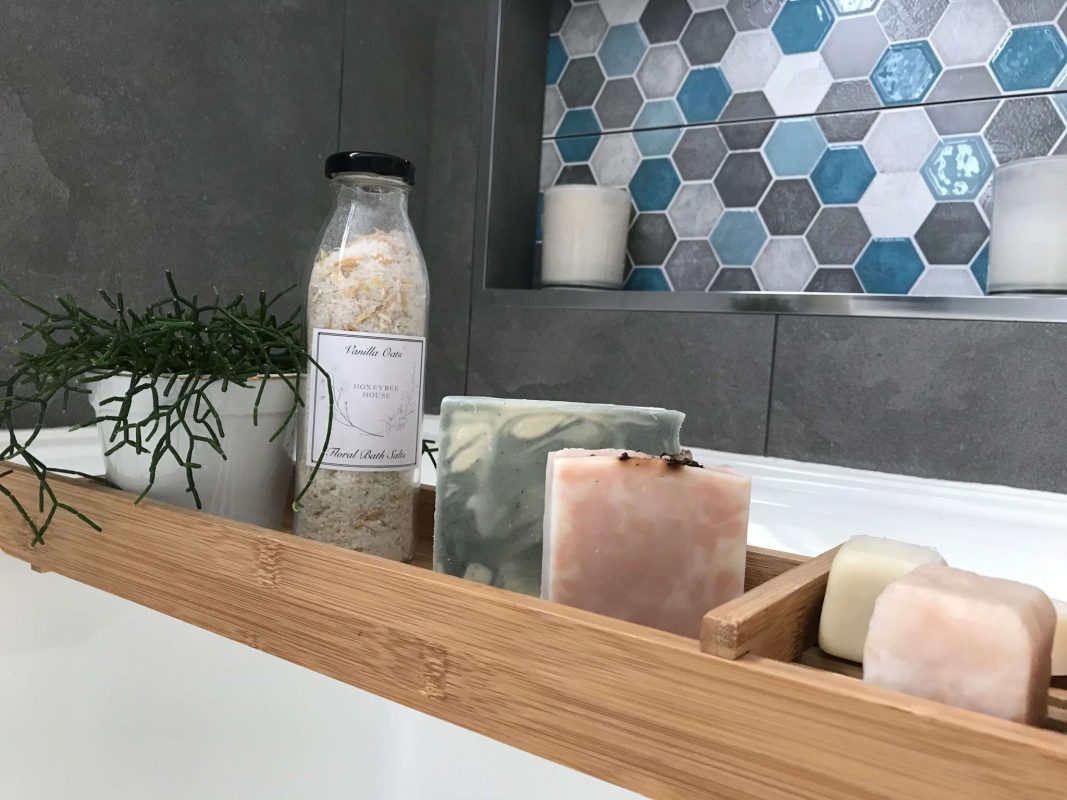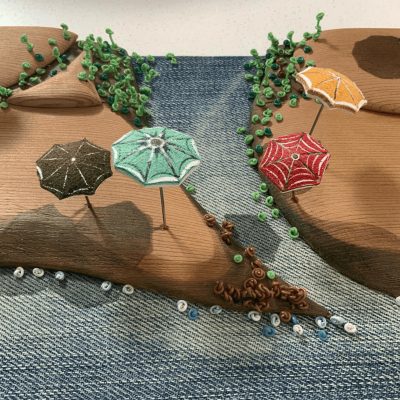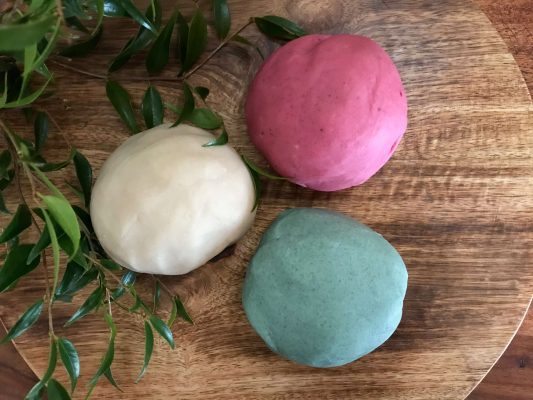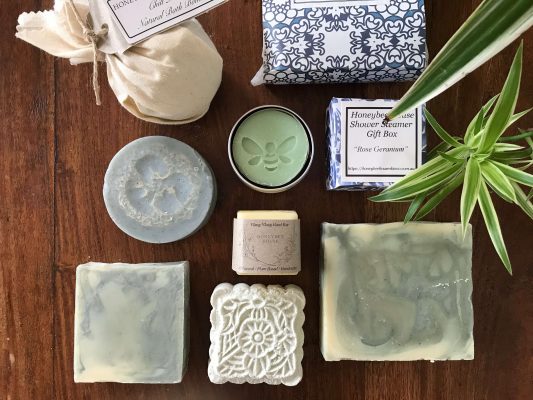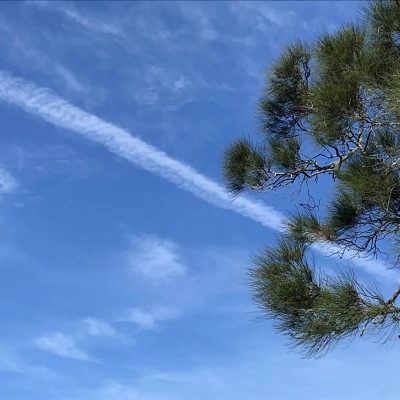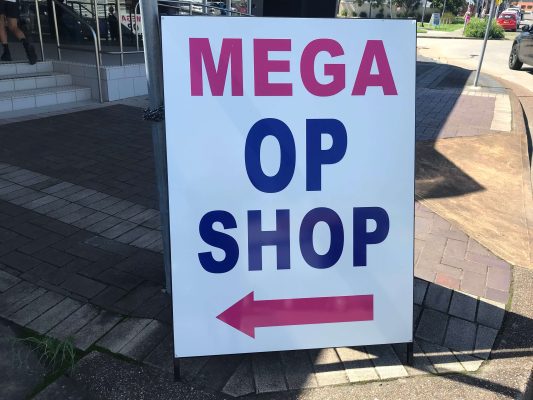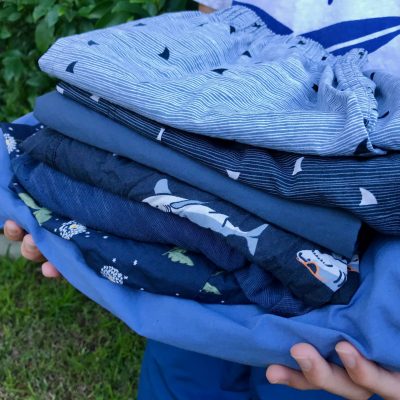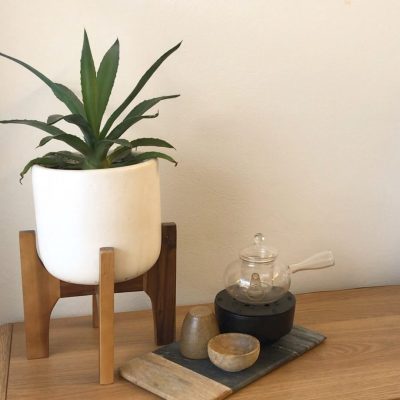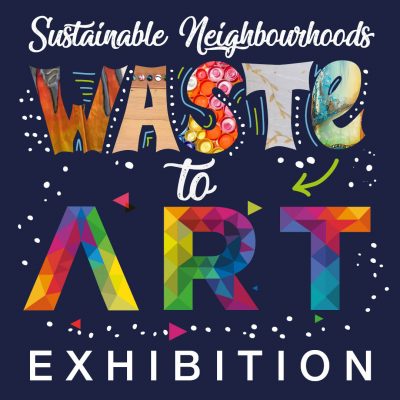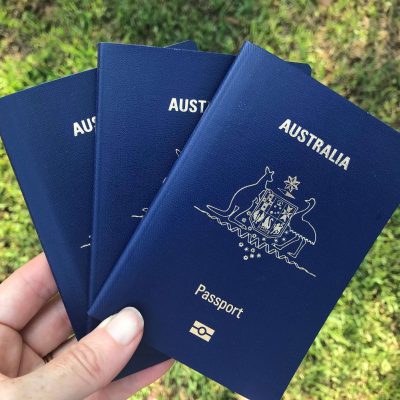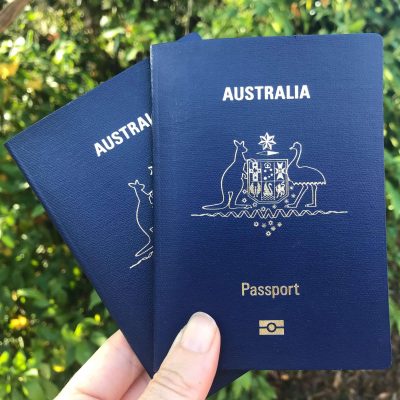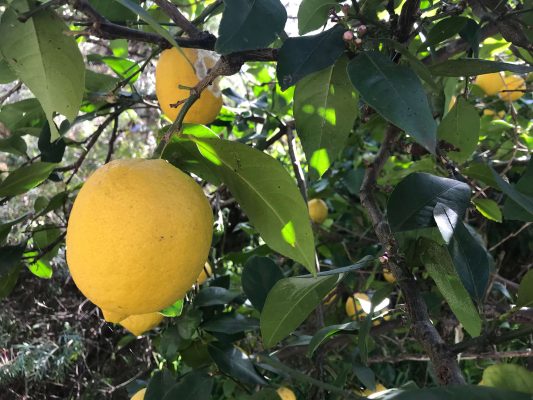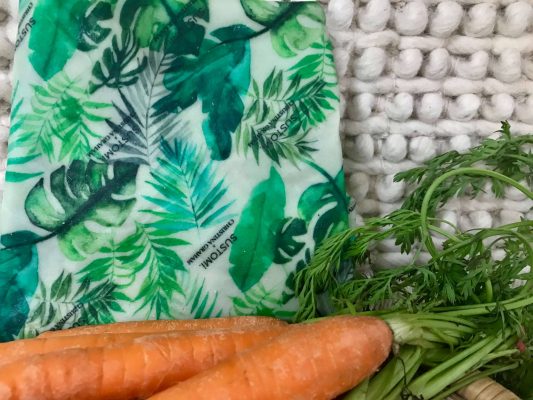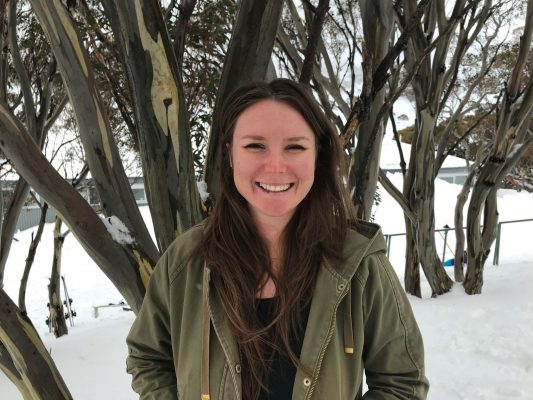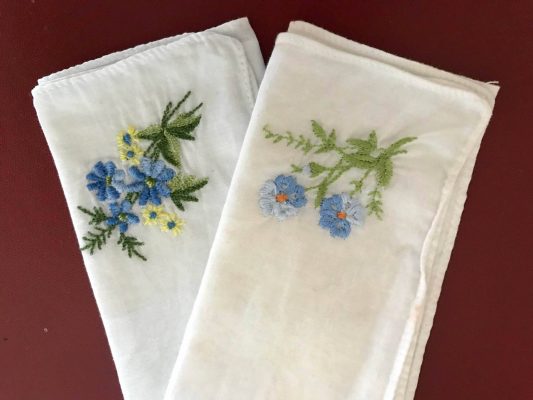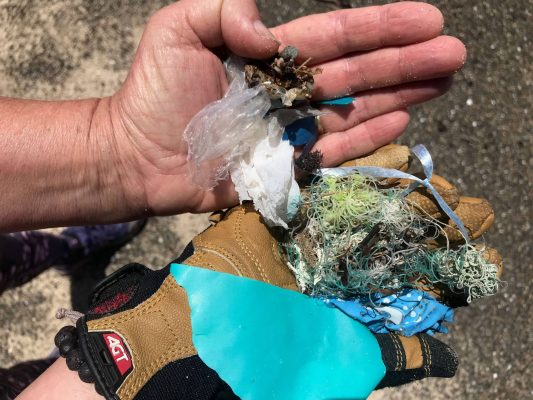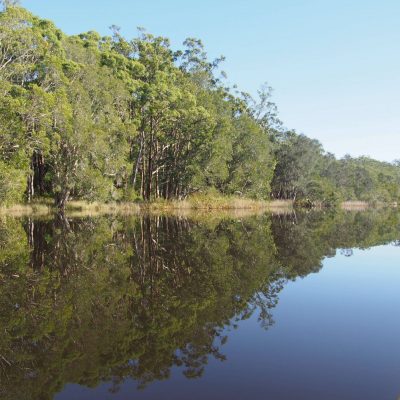Care, In the Home, People Health & Wellbeing
Natural Soap Making Inspired by Nature
This article is a summary only of the podcast conversation “7. Natural Soap Making Inspired by Nature”. Listen here to the full episode on Spotify podcasts or Apple podcasts, and go here for the relevant links mentioned in the podcast, or read on to enjoy the photos and summary of how the Mell from Honeybee House Skin Co. can help you understand why natural soaps are better for your skin and the planet.
Natural Soap Making Inspired by Nature
Have you ever thought about how your soap is made? Soap making has been around for thousands of years, but the rise of industrialisation, globalisation, and cluey marketing means we’ve lost that connection with real soap ingredients and soap making.
Someone who does know what’s in her soap is Mell Magill from Honeybee House Skin Co. Mell’s a Lake Macquarie soap maker who uses the cold soap making process to produce soap that’s beneficial, not just for your body, but also the planet.
From Inspiration to Solution
Living so close to the beach, Mell’s business grew from her strong connection to the ocean, and the need to protect it.
Wanting to limit the amount of plastics and packaging that came into her home, the Lake Macquarie local artisan started with a frequently used product – soap.
Mell’s soap-making journey has led her to understand other important issues such as the effect of parabens and phthalates on our skin and health, as well as understanding what “fragrance” really means.
What Makes Soap Soap?
Traditional cold-process soap making mixes an acid (oils and butters) with an alkaline (caustic soda), reacting as saponification to produce a pure soap bar. Unfortunately, big companies have muddied the waters about soap making, moving away from the traditional process to include many synthetic chemicals that don’t benefit the skin.
Natural soap making leaves all ingredients in the pot, including glycerin – a natural moisturiser that’s excellent for skin. Mell explains that mass-produced soaps often extract the glycerin, modify it, then add it back. In contrast, natural soap making keeps the whole process intact to help moisturise and give it a better feel.
Approach to Natural Ingredients
Ingredients found in mass-produced, shelf-stable soaps contain parabens and phthalates, which are more commonly known as plasticisers. These ingredients are a big red flag as they can be absorbed through the skin, inhaled and even ingested. Commonly found in fragrances, nail polishes, parabens are used as a preservative to extend shelf life. Liquid products in particular have more preservatives than solid products to maintain stability.
Mell’s passionate about making solid soaps and shampoo bars made with locally sourced, naturally-derived ingredients. She explains that choosing solid products can help reduce the body’s exposure to harmful chemicals, and is a great start toward lowering our toxic load.
For the Lake Macquarie artisan, natural soap making means simple, kitchen-friendly ingredients like oils and butters. Soap colourants include clay, liquid chlorophyll and spirulina – all safe enough to ingest.
“It’s really easy to step over the line and move away from something completely natural…but my personal ethic is…that’s not what I’m about.” Mell remains committed to using only natural ingredients, avoiding synthetic chemicals that are common in mass-produced products. Her dedication to natural ingredients reflects her personal values and commitment to customers’ health.
How Long Does it Take to Make Soaps?
The soap making process is sensitive to the climatic conditions. Cold weather can harden the soap, taking longer to cure, whilst hot days above 30°c triggers a gel phase, leading to cracks, bubbles or holes within the soap. Proper curing ensures the soap cutting process is easier for a high quality finished product.
Mell allows her soaps to cure for a minimum of six weeks, which is longer than most artisans. While this means the products take longer to get to the customers, it results in a longer lasting soap for them to enjoy.
Sensitive Skin Care Focus
Mell’s products are ideal for customers with sensitive skin, specialising in products that are gentle and free from harsh chemicals. She listens closely to customer feedback, allowing her to refine her products and share this knowledge with her community.
Easy Clean Formula
Mell’s natural soaps lather well with the use of natural surfactants, leaving minimal residue in the shower, making surfaces easier to clean. She recommends a simple, citrus-based cleaner to wipe away any leftover residue, as the preferred eco-friendly solution.
Commitment to Local Sourcing
Supporting local producers is at the heart of Honeybee House Skin Co. She prioritises Australian-made and Australian-grown ingredients, sourcing her olive oil from NSW. She believes “taking care of each other” is an essential part of good business collaboration.
Getting Past the Suds
One of the biggest misconceptions about soap comes from greenwashing by the marketing agencies of the big brands.
For example, liquid soap gained popularity through marketing that promoted it as having a better smell, easier to use and fewer germs compared to bar soap. This marketing push has now stuck in people’s minds. Yet natural soaps, often produced by artisans and small businesses, don’t have the massive marketing budget but are better for your skin and don’t cause dryness.
Being an Informed Customer
Mell helps customers feel confident about making informed choices that benefit both their skin and the planet. Her top tips for being an informed customer of personal care products are:
- Find out where your information is coming from.
- Check the ingredients. Be aware that many ingredients can fall under the term “fragrance” without companies specifying them, as it’s often considered a trade secret.
- Be aware of greenwashing. Terms like “no added parabens”, “no added phthalates”. may be in the “fragrance”, which is usually synthetically-derived.
Talking to her customers, she knows they want to be more natural, more sustainable and low tox.
Tips for Looking After your Soap
Buying natural soap is a great first step toward a more sustainable lifestyle. Proper soap care increases the longevity of the soap and keeps wet areas cleaner. Hearing stories from customers about how long their bars last brings Mell such pleasure, as it creates a full-circle customer experience.
For the best soap longevity:
- Dry out between uses
- Use a draining soap dish. Avoid letting the soap sit in water.
- Store on it’s side for good air circulation around the entire bar.
Honeybee House Skin Co. soaps and shampoo bars are available online here or at local markets around Newcastle NSW.
If you prefer to purchase directly from your local soap maker artisan, search for markets in your area, have a chat with the maker to learn about their products and ethics so you can really support natural, locally made soaps.
The ReNewy Living Podcast was recorded on Awabakal country. I wish to acknowledge the traditional owners of the land and waters in the Newcastle and Lake Macquarie region of New South Wales.
I hope you’re feeling more confident about doing better for our people and planet by taking a start where you live approach to living sustainably. If this episode has spurred you into action, please feel free to share it with your friends. It would mean the world to me!
Listen into the stories and voices of this story here at Spotify podcasts and here at Apple Podcasts… And you can also sign up to my regular emails here… I look forward to sharing more stories with you next time.
7. Natural Soap Making Inspired by Nature
Links from the Podcast Episode
- Honeybee House Skin Co – website and online shop
- Honeybee House Skin Co – instagram
- Thanks to Awesome Newcastle for their support to make this podcast happen
Other Relevant External Links
- For more on Low Tox Living, read Low Tox Life from Australian author Alexx Stuart. My copy is an invaluable resource (#qbdbooks #affiliatesponsorship)
- Greenwashing by Businesses in Australia (March 2023 Report) by the Australina Competition & Consumer Commission (ACCC)
- Handmade ceramic soap dishes to keep your soap dry (#etsy #affiliatesponsorship)
Relevant Blogposts with ReNewy Living
- All blogpost episodes with links from The Renewy Living Podcast
- DIY Eco Friendly Cleaning Solutions with these waterproof stickers to add to any bottle
- Locally Handcrafted Soaps for a Plastic Free Bathroom is an alternative blogpost about natural soaps
Stories, News & Voices
Sharing stories that strengthen our commitment to nature, community, and a healthier planet.

